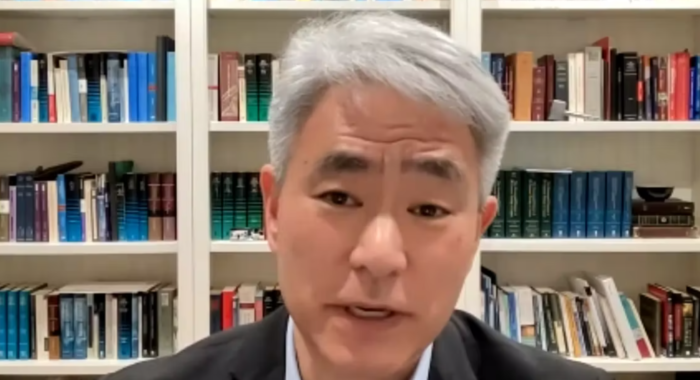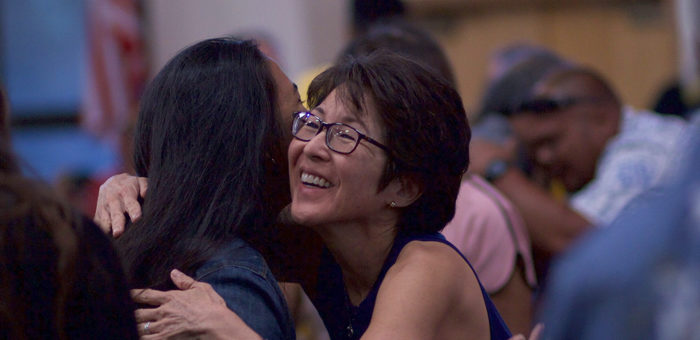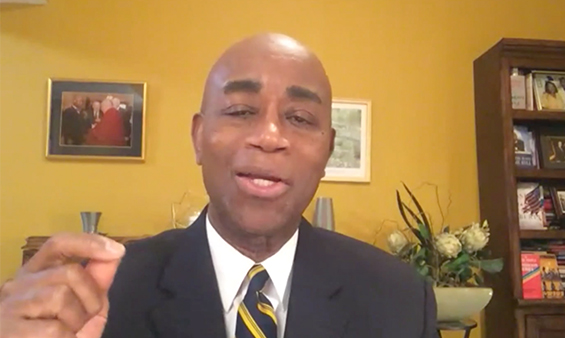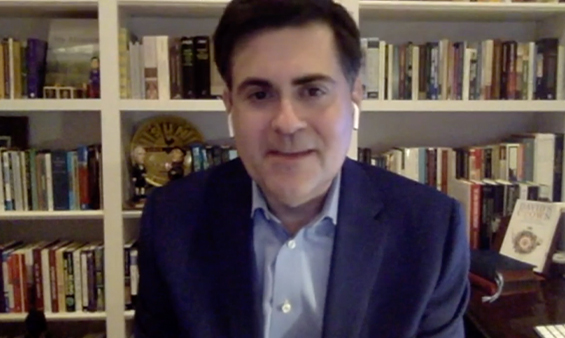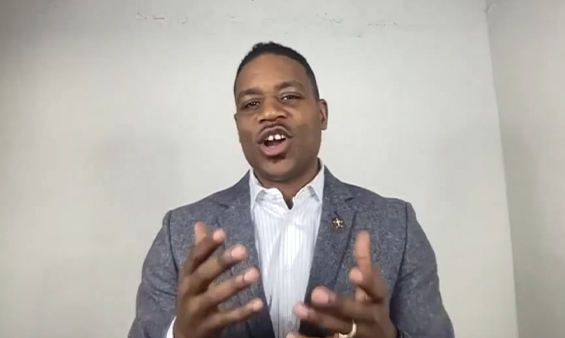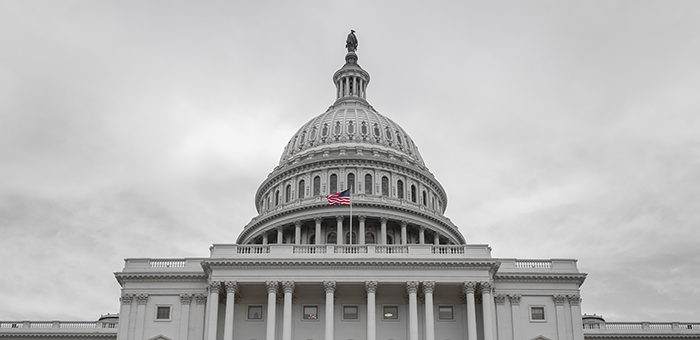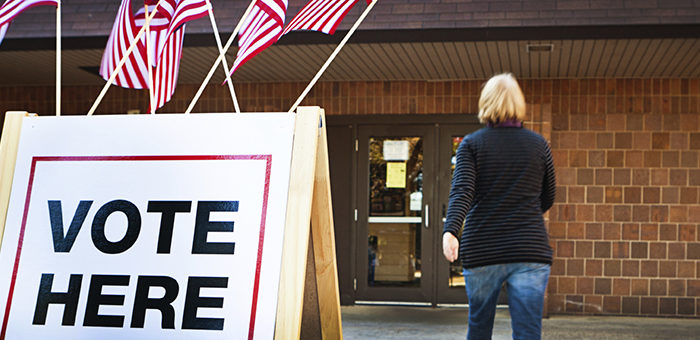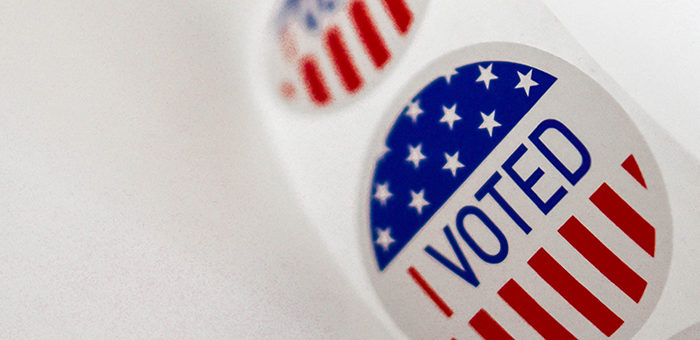Ron Sider is distinguished professor of theology, holistic ministry and public policy at Palmer Theological Seminary in Philadelphia, Pennsylvania, and author of over 30 books, including Rich Christians in an Age of Hunger, which was named the seventh most influential book in the evangelical world in the last 50 years by Christianity Today. Sider is an ordained minister in the Mennonite and Brethren in Christ Churches. He holds a B.A. from Waterloo Lutheran University, an M.A. and a Ph.D. from Yale University, and a B.D. from Yale Divinity School.

But we must resist the temptation to withdraw in disgust and revulsion for two reasons. First, elections and the resulting political decisions have an impact — for better or worse — on the lives of billions of people. Second, our most basic Christian confession is that Jesus Christ is Lord even of “the kings of the earth” (Revelation 1:5; Matthew 28:18). Therefore, Christians must seek to act politically in ways that reflect Christ our Lord. Since we live in a democratic society, our vote — or even our failure to vote — shapes what happens in the important arena of politics.
So we must engage in politics. But it doesn’t stop there. We are also called to submit to governing authority and to “show proper respect to everyone, love the family of believers, fear God, honor the emperor” (Romans 13:1-7; 1 Peter 2:17).
How do we show proper respect to those in power even if we ardently disagree with them? How do we let Christ be Lord of our politics?
A Biblically Balanced Agenda
We must start by having a biblically balanced agenda. To flesh out a biblically balanced agenda would require another article (or book). But the NAE’s official policy document, “For the Health of the Nation,” rightly calls us to be pro-life and pro-economic justice, pro-family and pro-creation care, pro-sexual integrity and pro-peace.
A broad agenda gives evangelicals credibility in the public square. We don’t solely speak to pet topics, but we attempt to speak into the breadth of concerns present in Scripture.
A Passion for Truth
Christian voters must have a passion for truth. Sadly, politicians often tell lies — half lies and whole lies. Christians know that God hates lies — and also that lying in politics is bad for democracy. Christians should demand honesty and civility from all politicians.
And if politicians claim to be Christians, then we should be especially strong in condemning any dishonesty or lack of civility in their actions. In fact, prominent evangelical leaders have done precisely that in prominent condemnation of unChristian political behavior. And all of us should listen carefully to their critiques as we reflect on how to vote this November.
It is easy to go online to Politifact (They won a Pulitzer Prize.) or Factcheck. Responsible fact-checking organizations like these can quickly tell you whether what a politician says is true.
And we should take great care to be truth-tellers ourselves. Before forwarding an email about a candidate or governmental official’s position on a topic or some other piece of information meant to demean or attack the person, we should fact-check to make sure we are being truth-bearers. This is a way to respect those God has put in authority over us.
A Passion for Civility
Lastly, Christians should have a passion for civility as they engage in politics. Biblical faith calls us to respect every person — no matter how much we disagree with them — because every person is made in the image of God and is loved by God.
Perhaps the most important thing evangelicals could do during intense political seasons is model honest, civil discussion in our local congregations. Civility demands that we truly listen to those we disagree with so that we genuinely understand what they are saying.
Every local congregation could decide to form a “study-discussion” group focused on political engagement. The group should include Republicans, Democrats and Independents. If your congregation is entirely Republican (or Democratic), then partner with a neighboring church with different views. Every person who joins the group should promise to listen carefully to each person’s views and arguments. (One great way to test if one is listening carefully is to rephrase the other person’s views and then ask if that is what they truly mean to say.)
If holding the group during a presidential election, each group could research the platforms and behavior of the presidential candidates and then compare their overall platform (and also what one can reasonably expect them to try and implement if elected!) with the balanced biblical agenda of the NAE’s “For the Health of the Nation.”
After vigorously — and with truth and civility — arguing for different positions, each group could pray together asking God to guide their advocacy and election outcomes, since we humans can only “see through a glass darkly.”
A New Era of Political Discussion
We are privileged to live in a democracy where every person has a vote and the people (at least theoretically) can decide who will be our political leaders. But democracy only works well if citizens are informed and thoughtful and if politicians are honest and civil.
America has urgent problems that require political decisions. Tragically, the lack of honest, civil political dialogue has produced dangerous gridlock. But Christians and local churches can model civil, honest political dialogue and debate across genuine political disagreements. By doing this, we might even encourage our politicians to embrace a new era of honest, civil political discussion.
This article originally appeared in Evangelicals magazine.



 View All Articles
View All Articles 



